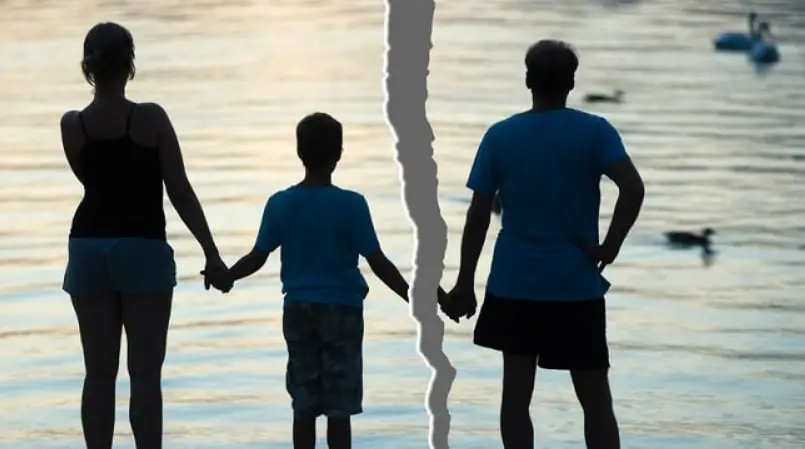There are two very common legal arrangements adopted in the UK to ensure the welfare of a child who cannot live with biological parents, namely adoption and guardianship. Both provide a framework for caregiving but differ significantly regarding legal responsibilities, permanence, and rights of the biological parents.
We discuss the differences between the two arrangements below to clarify their legal implications and practical applications.
Definition and Legal Basis:
– Adoption: Adoption is the legal process permanently transferring all rights and responsibilities associated with being a parent from the child’s birth parents to the adoptive parents. The adoptive parents are then considered the legal parents of the child in every aspect of life once the court grants an adoption order. It is controlled by the Adoption and Children Act 2002 in England and Wales, the Adoption (Scotland) Act 2007, and the Adoption (Northern Ireland) Order 1987.
The guardianship is the appointment of a guardian who takes responsibility for a child’s care and decision-making if he or she does not have parents. Legal ties between children and their birth parents are not severed when someone is appointed as a guardian, unlike adoption. In other words, the guardianship is usually governed by the Children Act 1989 in England and Wales but identical in Scotland and Northern Ireland. It is more a temporary or situational place.
Key Differences:
1. Parental Rights and Responsibilities:
In adoption, all parental rights, duties, and obligations are permanently transferred to the adoptive parents. The biological parents once the adoption order is made, lose their legal standing in the child’s life.
Guardianship is not the revocation of a parent’s legal rights over a child. However, it assigns the guardians powers to decide how the child lives day to day while the guardianship leaves in place the parent-child relationship in law.
2. Permanency:
Adoption is final with very limited possibilities of revoking it. Instead, it intends to provide for the child permanent family life.
Guardianship, however is sometimes only temporary or revocable. For instance, guardianship can be terminated once the child attains the age of 18 years or when circumstances change, like when the biological parents regain the capacity to care for the child.
3. Legal Process:
Adoption entails a very legal process, including social worker assessment, court hearing, and adherence to statutory provisions. The court has to be satisfied that adoption is in the best interest of the child.
Guardianship is usually simpler. It can be created through a parent’s appointment in a will or through a court order, especially if the biological parents are deceased or incapacitated.
4. Emotional and Social Consequences:
o. Adoption usually means the child is fully absorbed into the adoptive family, with a name change and the new birth certificate issued.
o. Guardianship preserves the child’s current identity and legal relationship with their biological family, which may be an important part of maintaining cultural or family connections.
Read Also: Pets Custody in Divorce?
When to Adopt?
Adoption is generally appropriate in cases where:
• The biological parents of the child are incapable of permanently providing for them due to reasons like abuse, neglect, or abandonment.
• The court holds that it would be in the best interest of the child to place the child with a family that will give him stability and security in the long term.
• Prospective adoptive parents are ready and willing to assume the full responsibilities of parenthood, treating the child as their own.
When is Guardianship Appropriate?
Guardianship is appropriate in cases where:
• The parents of the child may be temporarily incapacitated from providing care but will recover the capacity in the future.
• Parents are deceased and have also provided in a will with whom the child should be left with.
• The child has a need for care that takes into account existing family ties, such as being placed with relatives or close family friends.
• Temporary arrangement, such as during a crisis period.
Legal Considerations:
Anyone who is considering adoption or guardianship should seek legal advice to understand their rights and responsibilities fully. Adoption orders and guardianship appointments require court approval, and the court’s primary focus will always be the child’s best interests.
In addition, both plans entailed protection and evaluation checks to be carried out for securing the child. The adoptees and guardians-to-be would have to interact with different authorities, such as social workers and lawyers throughout the process.
Conclusion:
Adoption and Guardianship are separate legal systems and processes meant for protecting and upraising children needing care. While adoption provides a permanent solution by creating a new legal family, guardianship offers a flexible arrangement that preserves the child’s connection to their biological family.
Understanding the nuances between the two can help individuals and families make informed decisions that prioritize the child’s welfare and future stability. If you’re considering either option, consulting with a family law solicitor or local authority is an essential first step.
For further advice please get in touch with our team today by calling 020 8538 0182 or +44 7857 809932, or you can email us on [email protected].
Please note these blogs are to enhance your knowledge and are not tailored advice, for specific advice please get in touch with our outstanding team.



